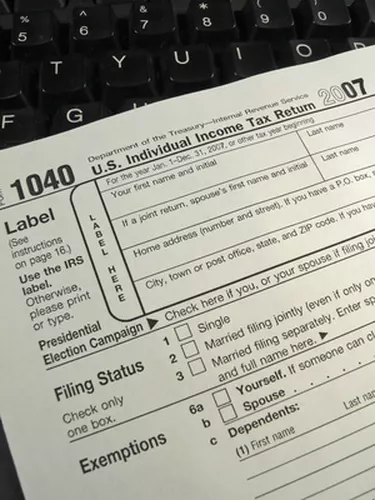
Your employer does not withhold a greater amount of your paycheck when you get paid weekly, although he does withhold payroll taxes more frequently than if you were paid biweekly. Tax withholding on a weekly paycheck is smaller than on a biweekly paycheck, but these tax deductions ultimately add up to the same amount.
Tax Tables
Video of the Day
Tax tables are one method that your employer can use to figure your weekly or biweekly income tax withholding. A tax table is a chart the IRS mails to employers. In includes separate pages for different types of tax categories, such as a single person with a biweekly payroll period or a married person with a weekly payroll period. It also contains columns corresponding to the number of deductions you claim on your W-4 form, and lines for different wage ranges during the pay period.
Video of the Day
Weekly and Biweekly Withholding on Tax Tables
The amount that the tax table tells your employer to take out of your paycheck for a biweekly pay period is double the amount it tells him to take out for a weekly pay period. In other words, your withholding for each week comes to the same amount whether you receive your check every week or every two weeks because the average weekly amount is the same even during the longer pay period.
Percentage Method
The IRS also allows your employer to calculate your federal income tax withholding as a percentage of yourgross wages. This percentage will vary based on whether you are married or single, how many deductions you claim and how much money you will be earning during the year overall. But it will stay the same whether your employer pays you weekly or every other week.
End of Year Reconciliation
Regardless of how much money your employer takes out of your weekly or biweekly paycheck, your tax obligation at the end of the year when you file your tax return will be the same. Your weekly or biweekly withholding amounts are based on the assumption that you will earn a particular amount during the year overall. The annual federal income tax form that you fill out reconciles these assumptions with the amount you actually earned during the year, figuring in multiple jobs and periods of unemployment.